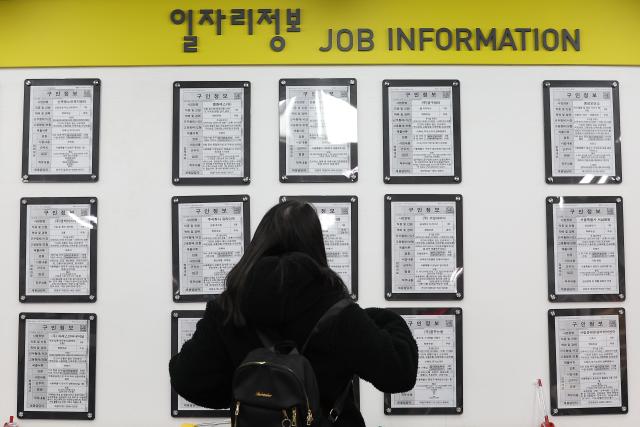
SEOUL, April 14 (AJP) - Employment among South Koreans in their late 20s dropped sharply in the first quarter of 2025, marking the steepest quarterly decline in more than a decade, according to government data released Monday.
The number of employed individuals aged 25 to 29 fell by 98,000 compared with the same period last year, the Korean Statistical Information Service (KOSIS) reported. The last time employment in this age group declined so severely was in the third quarter of 2013, when it fell by 103,000.
The data underscores a deepening trend of labor market instability for young adults.
Employment in this demographic has contracted for nine consecutive quarters, beginning in early 2023. The pace of decline has intensified in recent months, from a loss of 44,000 jobs in the third quarter of 2024 to 62,000 in the fourth quarter, culminating in the nearly 100,000-job drop at the start of this year.
While South Korea’s aging population and shrinking youth cohort have played a role, the decline far outpaces demographic changes alone. The number of economically active individuals in their late 20s has declined more sharply than the population itself, and both the unemployment rate and the absolute number of jobless individuals in this group have risen.
The number of economically inactive people — those neither working nor seeking employment — increased by 16,000 in the first quarter, reversing a four-year trend. Within that group, the subset classified as “resting,” or voluntarily disengaged from the labor market, grew by 18,000. It was the fourth consecutive quarter of increases for this category.
Economists point to a combination of structural and cyclical factors behind the downturn. Job losses have been particularly severe in manufacturing and construction — industries traditionally viewed as gateways to stable employment for younger workers. Compounding the problem is a growing corporate preference for experienced hires over new graduates.
“Along with structural demographic challenges, the increasing emphasis on experience among employers has left many young adults economically inactive or unable to gain a foothold in the job market,” a finance ministry official said. “We need to develop incentives and support systems that help young people find jobs that align with their skills and transition into the workforce during their twenties.”
Copyright ⓒ Aju Press All rights reserved.


View more comments